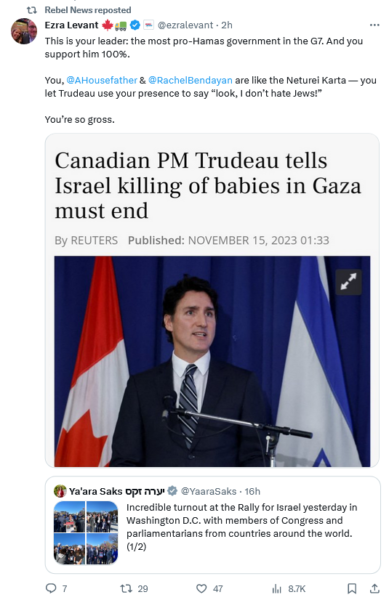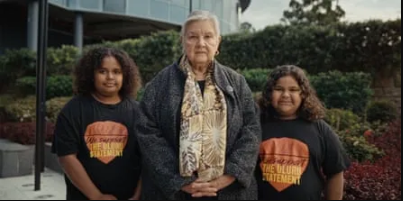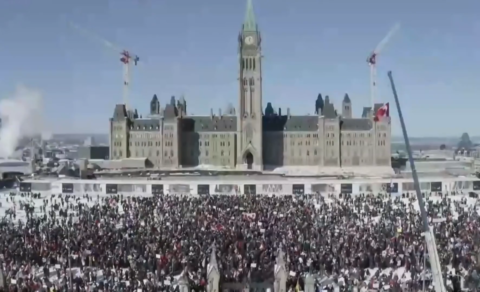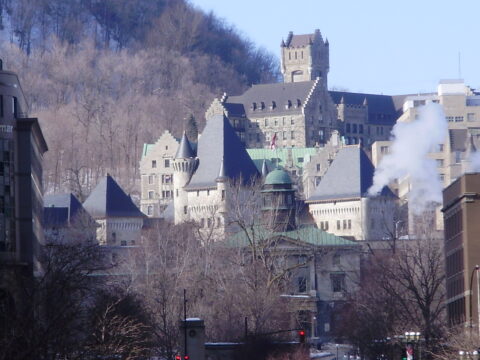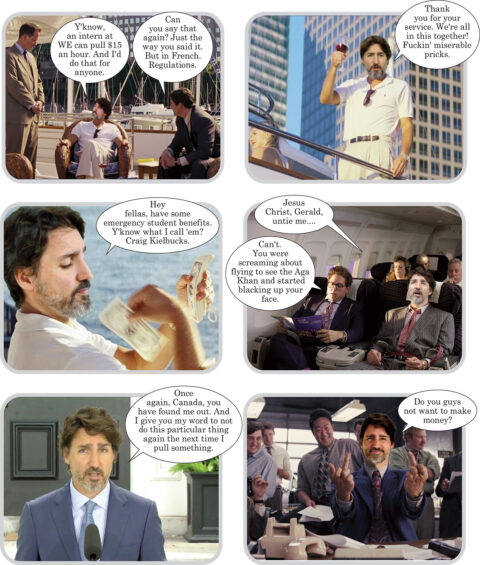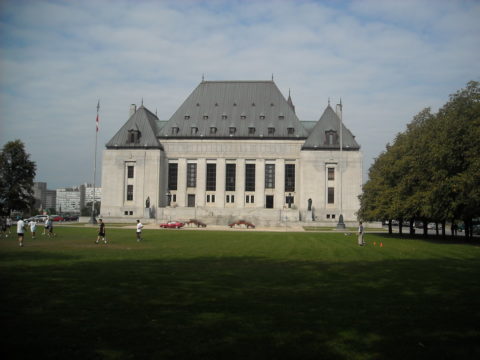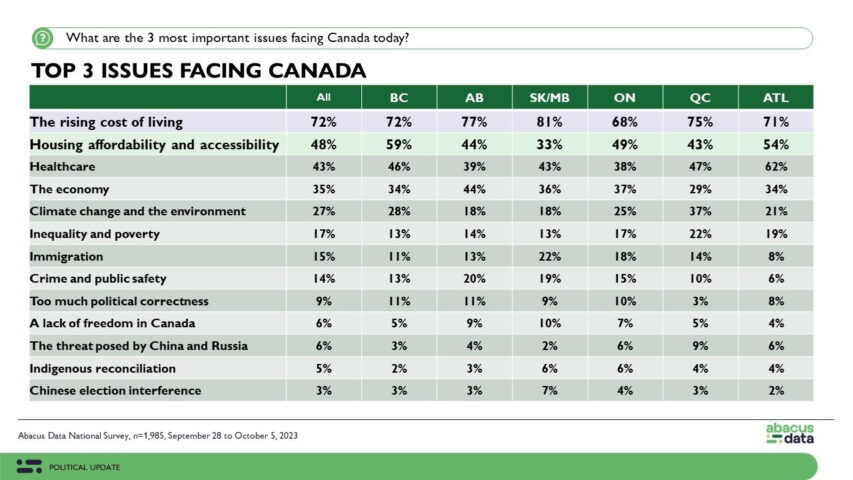I hope you’ll forgive my self-insert here, but watching the video on the Mississauga train derailment prompted me to dig up a bit of personal history related to this thankfully non-tragic event in Canadian history. This is what I wrote about the events of that week not at the time (I was far too busy living it to record anything) but a couple of months after the fact. Samuel Pepys I wasn’t. I note in passing that my memories today don’t exactly match what I wrote in early 1980, which does bring home to me the fallibility of “eyewitness” reports after the fact.
In November of ’79, on the 11th actually, a chemical train derailed just northwest of [our apartment near Dundas and Hurontario Streets]. It spilled 16 tank cars full of propane and one full of chlorine all over the Mavis Road crossing.
I was driving back to Hamilton on Saturday night to drop off [my girlfriend]. Rockney was inexplicably along with us that night. Around midnight, I noticed the road all around us light up as though dawn had come early. Also noticed a pronounced mushroom-type cloud and lots of incident light at its base. Right there, my mind kicked into Hyperdrive and I analyzed the data, assumed the worst, and nearly swung off the highway to protect us behind an embankment. [The others] saw that it wasn’t an H- or A-type of explosion, and so we didn’t worry too much. Flames [on the eastern horizon] were easily visible from Hamilton.
I went back [to Mississauga], dropped Rockney off [and] noticed a police car blocking the intersection of Dundas and Hurontario with its lights going. Talked to Mum, who was still up, and went to bed at 3:00am.
We were woken up at 10:00am by police evacuating the building. I called Rockney and we all trooped over to his place. I stayed for 1/2 an hour, and decided to go back to the house, change into [my army reserve] uniform, and go up to Brampton for our Remembrance Day parade. On the way, I was stopped by the police and directed to go to Square One, where an evacuation centre had been set up. As I arrived there, the last bus-load of evacuees left headed for Streetsville Secondary School. I arrived there in time [to be given responsibility for security] with 15 assorted army and navy cadets [who were in uniform for their respective Remembrance Day services] who had no officer handy. We cleared the halls [at the direction of police and school authorities] and tried to maintain calm among the evacuated throng.
By 8 that evening, my force had shrunk to seven cadets led by Petty Officer Linda P. An officer cadet of the Air Reserve and five air cadets with him refused to assist me or the police. [I was angry at the time, but he was probably worried about the legal side of providing “aid to the civil power” while in uniform without permission from his chain of command. I was a junior NCO, so that thought never crossed my mind until much later.]
By this time, I had attached Chris P. [a friend of Rockney’s who was evacuated to Streetsville] and several other husky teenagers to my “security force” and we were able to keep things fairly quiet.
As people [started to realize] that they would be there all night, most of them settled down very nicely. [My team of cadets] issued blankets we’d received on a truck from CFB Downsview and shared out the available gym mats [as makeshift mattresses].
A local McDonalds sent in a “breakfast” of cold Big Macs [I’m sure they were hot going out the door, but they took a long time to get to us] — [the non-cadet members of] my security force got more than their fair share, but that was expected. Most of the media had disappeared by this time so we soon got involved in minor disputes with some irate citizens.
Sometime during Monday afternoon a Master Corporal from CFB Downsview called me to arrange a coffee run down to the [emergency crews working to contain] the fire. Nothing came of it in the end [I have no idea why they thought I’d be a useful participant, as I had no transportation other than my own car … maybe I was the only member of the military in the immediate vicinity].
Tried calling Rockney’s place [to see how my family were doing] but got no answer, same at Bill & Clive’s apartment [several miles further east of Rockney’s]. No idea where my parents have gone. [After being evacuated a second time, they’d ended up at the International Centre with the family cat and stayed there until later in the week, as I found out later. My sister hadn’t been at home so she was evacuated elsewhere with her boyfriend’s family. I have no idea where she spent the week.]
Monday night wasn’t too bad, except for [media reports] that there were 3 escaped cons in the area so i couldn’t send girls out alone on security sweeps [outside the school building]. Me, Chris P., Jordan L., and John D. were the only [ones available to do exterior security] now, getting VERY tired. Got an hour’s sleep.
On Tuesday a bunch of students from Humber College showed up. They were all taking the Law Enforcement course and wanted to help me with security. [The] only problem was that the course was 9/10ths female [so] I couldn’t use them [for exterior patrols, which is where we needed help the most].
Also showing up [later on Tuesday] was a local CB radio group who tried to take over from me and my team. It took two hours [of argument] before they gave up and went off to try to take over some other evacuation centre. [Around this time,] vandalism started on the back side of the school and in the portable classrooms. No one was caught at it, unfortunately. [I didn’t note it here, but I strongly suspected that one or more of my volunteers had done some of the damage out of boredom, but I had no proof.]
The biggest problem, however, was racial. A large group of black teenagers had taken over one of the Home Economics classrooms and had 2 competing ghetto blasters to make mucho noise. 2 fights had to be broken up in there and we had to call the police in to cope with the second fight.
[Tuesday] night was uneventful for a change. Wednesday wasn’t, as rumours of being able to go home kept hitting the people in the evacuation centre and nearly overwhelming the security teams at the doors. One asshole, a guy about 20-25 years old, kept buttonholing me and other members of my team and demanding shampoo, of all things. Eventually, someone got him some and he “went to the showers”. [In hindsight, he probably had just come down from whatever drugs he’d been on for the previous few days.]
On Wednesday night, the evacuation centre in Streetsville was shut down and everyone was moved to other facilities on Mississauga Transit buses. Most were taken to the Royal York Hotel in downtown Toronto, but my remaining team members were sent to a Holiday Inn in Scarborough. [I was in rough shape by then and someone got me to hospital to get checked out. I was there for about 10 hours before they discharged me with advice to “get plenty of rest”.]
Thursday we spent in the hotel, charging everything to CP Rail. They must have hit the roof when the bill arrived — especially the bar bill! We threw an “exhaustion party” in our room on Thursday night and on Friday we were finally allowed to go home (most of us, anyway).
When I went back to school the following week, I was given the third degree by the vice principal because the Red Cross didn’t have me listed as an evacuee. I had to get the hospital records to show that I had actually taken part before I was allowed back into class. [A similar thing happened the next unit parade night, as I’d been on TV several times in my uniform during the event and my commanding officer was quite upset about it, thinking I’d been pretending to act in some sort of official capacity, which I hadn’t been.]

.


